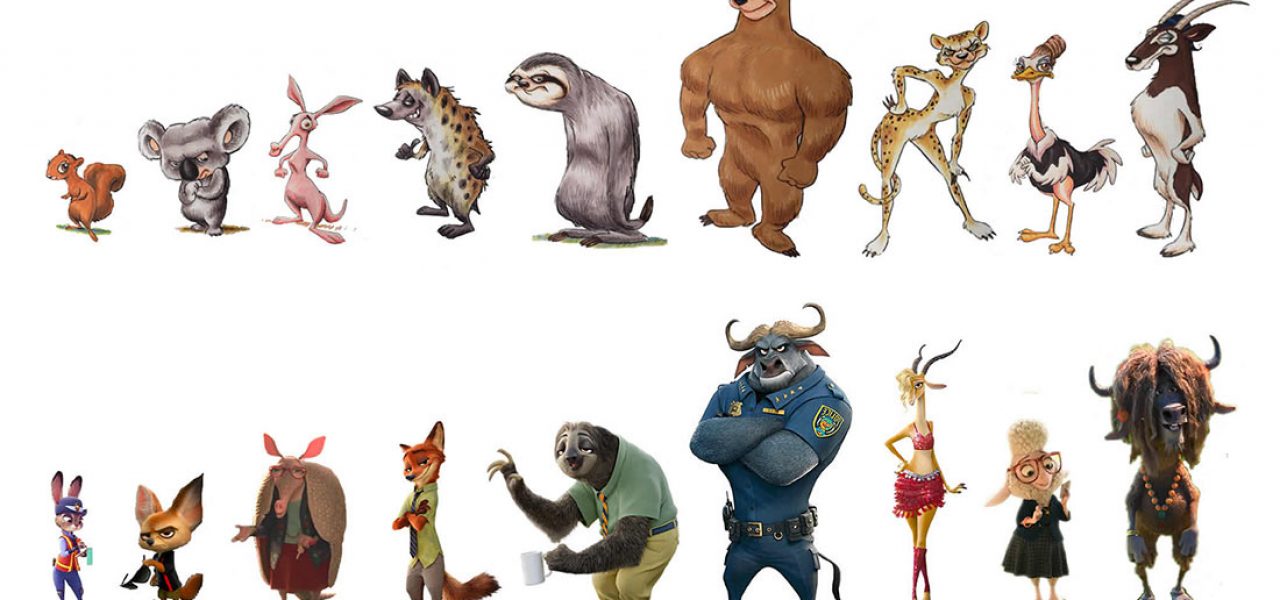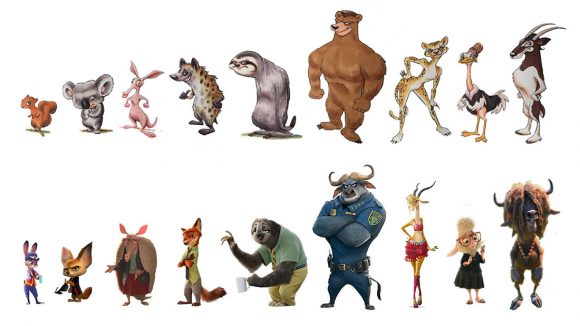

Federal Court Sides With Disney, Dismisses ‘Zootopia’ Theft Lawsuit
As reported previously by Cartoon Brew, in March, screenwriter Gary Goldman (whose credits include Total Recall and Big Trouble in Little China), sued The Walt Disney Company in federal court, claiming that Disney’s smash 2016 hit, Zootopia infringed the copyright in his own work, titled Looney.
After Disney answered Goldman’s complaint denying all allegations, and after a hearing before Judge Michael Fitzgerald, the Court last week ordered Goldman’s suit to be dismissed, finding that Goldman failed to support his allegations with sufficient facts. The Court will allow Goldman the chance to amend his lawsuit by including additional supporting facts, so there remains a chance the suit can be revived.
Goldman alleges that in 2000, he registered with the Writers Guild of America a work he titled Looney, about an animator and his fantasy cartoon world creation called “Zootopia,” where anthropomorphic animals reigned. In 2009, he pitched his project to Disney executive Brigham Taylor, who promised to bring his materials, including character descriptions and illustrations, to the Disney animation department. Goldman claims that shortly thereafter, Disney put into development their own Zootopia project, basing materials on Goldman’s own project.
To prove copyright infringement, Goldman must prove there was “substantial similarity” between Looney and Zootopia. Goldman attempted to do this with allegations that both works feature “similar conflicts among the characters…about whether one can be what he or she wants to be…,” with “two contrasting protagonists” that team up and “contend with prejudice and preconceived notions of the elite, including a power structure headed by those whose species were dominant in a state of nature.” Goldman included in his complaint side-by-side illustrations of his characters with the Disney characters.

But in his order, Judge Fitzgerald – appointed by President Obama in 2012 and the first openly LGBT person on the federal bench in California – wrote that Goldman’s descriptions of his characters and story were too general, that it was difficult to discern the plot of Looney, and that Goldman failed to include either his screenplay, a treatment, or even a synopsis of his work for the court to compare to Zootopia.
“This action,” Judge Fitzgerald wrote, “presents the unusual question of whether a plaintiff can plead substantial similarity between two works without…actually attaching the allegedly infringed work for the Court’s review.” Without these materials, the Court could not determine whether there was substantial similarity between Goldman’s work and Disney’s hit.
“The details of the plot, dialogue, setting, and so on, are pled at such a high level of generality that arguably they consist only of non-protectable concepts and themes,” added Fitzgerald. In copyright law, elements common to any genre or type of work, such as “buddy cops” or “odd couple” pairings, are known as “scénes á faire,” that is, elements that are almost obligatory in certain types of work and so are not protected by copyright.
Perhaps ironically for a complaint filed by a highly-paid and established professional storyteller like Goldman, Judge Fitzgerald found it “impossible to get more than the most general sense of Looney’s plot from the Complaint, because the story arc itself is never” made clear. Instead, it is left “for the Court to infer details of the plot from a list of purported similarities.”
Worse, some of the “factual” details alleged in the Complaint are wrong. For example, the Complaint alleged a story arc shared by both Looney and Zootopia where the hero loses a dream job following a job crisis. But Zootopia’s Judy character, according to Judge Fitzgerald, “does not ‘lose’ her dream job, she voluntarily resigns at the height of her success.” Fitzgerald also characterized the comparison between both works’ climaxes as “strained,” and that the Complaint “misstates” the sequence of events in Zootopia.”
Nor did the Court find the comparison of the character illustrations persuasive, noting that “none of the above pairings actually include the same animals… Additionally, the Looney characters are unclothed while the Zootopia characters are all elaborately costumed.” Fitzgerald thought the Disney characters “cute and appealing…clean, healthy. And well-built,” whereas the Looney characters were “darker, seedier,” with “slovenly physiques, poor posture, and circles under their eyes.”
Ultimately, the Court concluded that the failure to include any clear summary of Looney’s “plot, dialogue, themes, and so on indicates, on some level, that [Goldman] believed including those details would have been detrimental to [his] claims.” The Court offered Goldman a chance to revise his Complaint to address these shortcomings.
Goldman has until August 3, 2017 to amend his Complaint.

.png)